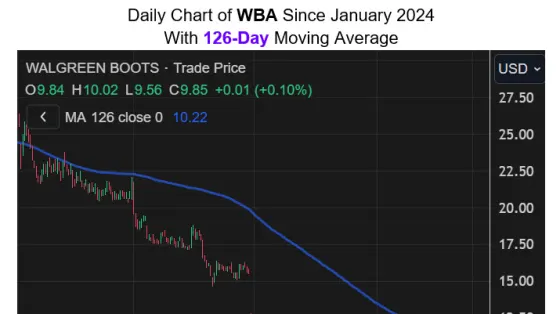With the recent news that TBC Uzbekistan’s £37m investment has made 2024 a record year, it's worth taking a deeper look into a market that most are probably unfamiliar with.
Group has a unique consumer-lending-led approach to building a digital banking ecosystem and its use of AI. But what makes Uzbekistan such an exciting market? Given its rapidly developing local tech scene and favourable macroeconomic and demographic trends.
With this recent success, TBC looks at future international expansion beyond Georgia and Uzbekistan.
Robert Prendergast (RP) What makes Uzbekistan a unique market?
Oliver Hughes (OH): Uzbekistan is Central Asia’s most populous country. It has an educated, tech-savvy and growing population of 37 million people, of which 59% are under the age of 30. The country is open to international business and is undergoing economic reforms, liberalisation and starting to attract more foreign investment. The macroeconomic backdrop is strong, with GDP expanding at an average annual rate of around 6% for the past decade and forecast to almost double to $160bn between 2023 and 2030.
While the market is relatively underbanked and there is huge demand for modern digital banking services, it has also managed to achieve a level of innovation that would surprise most people unfamiliar with the country. Uzbekistan has built a genuinely interoperable open-banking system that is more advanced than in any developed market, allowing customers to seamlessly interact with multiple financial institutions through their primary provider.
For instance, when a customer of one bank opens an account with another institution, the new bank gains visibility into the customer’s transaction history and account balances from their original bank, while the new bank is also able to initiate fund transfers or debit transactions from the customer’s account at the original institution.
These key features combined - a strong macroeconomic environment, a young, growing population that is hungry for modern financial services and an existing data-rich, high-tech environment - have allowed us to scale quickly and profitably and launch new products and services that make everyday banking simpler for our users. With 17 million users, TBC Uzbekistan is now the leading banking ecosystem in Central Asia, comprising digital bank TBC Bank Uzbekistan (TBC UZ), the country’s largest digital bank, as well as Payme and Payme Nasiya, a fast-growing instalment credit business.
RP: What are the further goals for Uzbekistan?
OH: Our mission in Uzbekistan is simple – to make people’s lives easier by providing accessible banking and related services that are both simpler and more enjoyable to use. The past year has been a landmark one for TBC Uzbekistan, marked by significant progress. We secured a record $75m in new equity funding and $105m in wholesale financing, as we continued to scale profitably and launch new products and services.
We have recently unveiled Salom debit card, which is set to become TBC’s flagship daily banking product and the main gateway to our entire ecosystem. Additionally, we launched Osmon Card, our first revolving credit product, aimed at providing greater choice and fuelling loyalty among our customers, already equivalent to 40% of Uzbekistan’s population. We’ve also launched TBC Business, the country’s first fully digital banking service for SMEs and individual entrepreneurs.
In November we opened our state-of-the-art processing centre, custom-made for TBC Uzbekistan, enabling us to bring new products to market even faster and with greater efficiency. Going forward, we will continue to diversify our offering, driving customer engagement, boosting loyalty and adding new revenue streams for TBC Uzbekistan.
RP: What is TBC Bank’s approach to building a digital ecosystem?
OH: We are a consumer, credit-led digital banking business, supported by a customer deposit-led funding strategy and additional sources of wholesale funding. Our digital banking ecosystem already reaches over 17m users, which is over 40% of the entire population of Uzbekistan, and comprises a digital bank TBC UZ, digital payments superapp Payme and instalment business Payme Nasiya. We began our journey by obtaining a banking license, giving us full control over product development and allowing us to optimise the sequencing of product launches that would help us grow sustainably.
This approach enabled us to monetise our operations quickly, bringing in sustainable revenue that has allowed us to scale sustainability and achieve profitability in just 2 years, a record time amongst global digital banks.
With our core lending business supporting a strong balance sheet, we have since been able to expand our product offering, launching a new debit card, credit card and Uzbekistan’s first fully-digital service for SMEs, increasing customer engagement, boosting loyalty and adding new revenue streams.
Our model is crucial when building a digital bank in a market like Uzbekistan, where VC funding is less readily accessible than developed markets. But it has also enabled us to avoid some of the pitfalls of our peers in those markets, making us focus on building a deep, sustainable business and a real connection with our customers, rather than growing unsustainably across multiple geographies fuelled by VC cash.
RP: How is the company using AI?
OH: AI is a key innovation area and one where I am proud to say that TBC is leading among peers. The most common customer service solution right now is chatbots, but we’re skipping that stage and going straight to an interactive voice assistant – an AI-enabled agent or virtual assistant. What’s more, we’re enabling bilingual functionality in Russian and in Uzbek, a so-called “low-resource” language which tends to get overlooked by major tech giants.
A standout achievement made possible by our proprietary speech tech was our recent deployment of AI-powered assistants to make payment reminder calls to customers with loans in early stage delinquency. In 3Q of 2024 they handled over 40% of such loans, delivering efficiency gains while maintaining conversations that most customers couldn’t distinguish from real humans.
So already in 2024 we were able to enhance customer interactions with AI while boosting operational efficiency, and we have more AI-driven solutions in the pipeline for 2025. Ultimately, our AI-powered assistants will be able to do a lot more, guiding our users across all of our product offerings within TBC Uzbekistan, including the ones we plan to launch in the future, such as insurance, brokerage, travel and ticketing.
RP: What banking trends do you see in Georgia?
OH: Georgia is a very developed banking market where TBC holds around 40% market share across most segments. In addition to being the biggest commercial banking group, TBC also owns the largest digital classified, ticketing and payment platforms in the country.
The commercial banking scene is very well digitalised and most banks are strongly tech-enabled with offloading ratios from branch to digital channels above 95%. Banking penetration is very high - TBC, for instance, serves more than two-thirds of the population, half of which use our digital services on a monthly basis.
While banking penetration is high across all segments, including retail, SMEs, affluent and corporate, we are seeing a clear demand for more retail investment solutions. Digital banks are wise to this trend and have been expanding their retail investment offerings accordingly.
RP: Are there any further expansion plans?
OH: For now, we still have a lot of exciting things to do in Uzbekistan. We see that this market still has huge untapped potential and believe that we have the opportunity to build something of a truly significant scale here.
However, in the future we will be looking at other emerging markets with a population of around 30 million to 70 million people that have scope for significant growth and other favourable characteristics, making them attractive geographies for deploying innovative digital banking services.
"Interview: TBC Bank’s Oliver Hughes on what makes Uzbekistan an exciting market" was originally created and published by Retail Banker International , a GlobalData owned brand.
The information on this site has been included in good faith for general informational purposes only. It is not intended to amount to advice on which you should rely, and we give no representation, warranty or guarantee, whether express or implied as to its accuracy or completeness. You must obtain professional or specialist advice before taking, or refraining from, any action on the basis of the content on our site.





